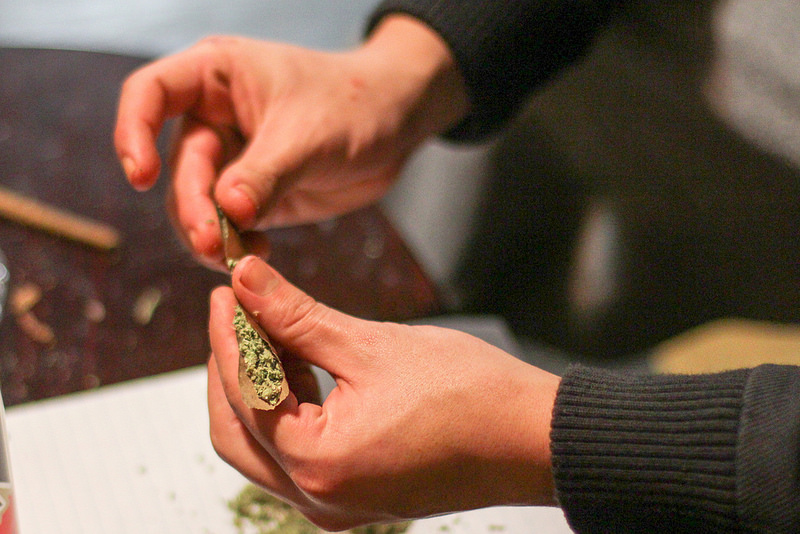What’s the deal with weed?
November 9, 2015
Cannabis sativa, pot, weed, or whatever you want to call it, marijuana is undoubtedly a much talked about topic all over the country.
Just last week Ohio voted against legalizing marijuana for recreational use throughout the state. It’s certainly not the first state this year to have had a proposition to legalize marijuana turned down. Several states, including Iowa, have had failed legislative measures to legalize medical marijuana since the beginning of 2015. Only two states, Pennsylvania and Florida, still have pending legislation to legalize marijuana for medical use this year.
People use marijuana for a variety of reasons. Some use it to relax, to alleviate stress, and for medical reasons.There’s a lot of debate over whether the good effects of using marijuana outweigh the disadvantages.
Tanner Stevens*, a student at West started using marijuana three months ago. “I have not been affected academically… my grades have not changed due to smoking,” Stevens says the only effects he feels are positive. “The days after I smoke I’m a lot calmer and I’m a lot more socially active.” He says that smoking has even helped him to get rid of his depression. “I was diagnosed [with depression]… It was consuming me…I have not had a depressive thought or a negative thought since beginning smoking.”
A major effect of using marijuana is short term memory loss. The more often it is used, the more intense the memory loss is. Excessive use of marijuana can also have significant impacts on an individual’s ability to learn information. Sarah Smith, a worker at Prelude Behavioral Services, an organization committed to helping people recover from substance abuse explained that, in the long term, marijuana use also interferes with the brain’s reward system. “Things that weren’t so stressful before now seem really stressful because you’re putting your brain on a full reward system,” said Smith, who recently spoke to a health class at West on the topic of marijuana.
With around 60 percent of Americans supporting the legalization of marijuana, there’s a lot of controversy around whether or not it should be a national law. “In Colorado [after legalization]…The black market… has actually increased because police are having a hard time figuring out who’s legal and who’s not,” Smith said. Colorado has also seen a higher teen use rate, and a higher high school dropout rate since the legalization of marijuana. Smith’s thought is this: “I think…the smart thing to do would be to see how it plays out…then make the decision.”
Some people are ardent supporters of the nationwide legalization of marijuana. “I think marijuana should be legalized everywhere,” said Jaya Blanchard ‘17. “I just feel strongly that it’s not worse than alcohol and if alcohol is legal, then marijuana should be.” Her sentiment is echoed by Ashlyn Dale ‘16, who said “Since alcohol and cigarettes are already legal at the age of twenty-one, I think that those have worse effects on people…so I think marijuana should be legal because it’s a drug that isn’t as harmful.” Others have slightly more reserved opinions on its widespread use. “If the government was regulating it…it won’t stop the drug dealers from selling illegal marijuana with chemicals on it,” said Sam Gienapp ‘19, a supporter of the legalization of strictly medicinal marijuana. “It’s been proven to help,” said Mason Hanson ‘18, referring to conditions like epilepsy and cancer. “[But] I don’t think people should be able to just say ‘Ow, my back hurts,’ to their doctor and get marijuana.”
*Student’s name changed to protect identity
